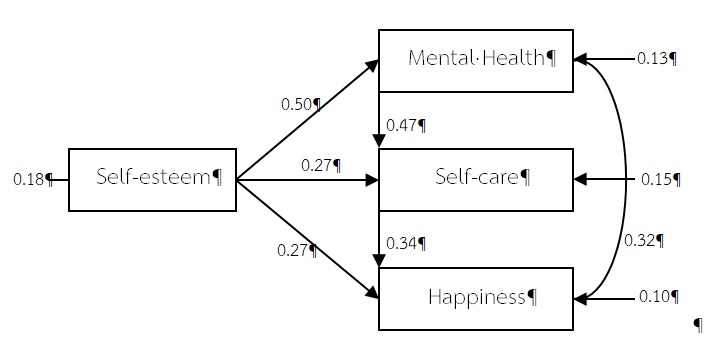A STUDY AND DEVELOPMENT OF ENHANCING A MODEL FOR HAPPINESS BY USING THE FACTORS AFFECTING THE HAPPINESS OF THE ELDERLY OF CHIANG KHONG DISTRICT, CHIANG RAI PROVINCE
DOI:
https://doi.org/10.14456/nrru-rdi.2020.45Keywords:
Happiness, Elderly, Model, Factors affectingAbstract
The purposes of this research were to study the internal features, seek the factors affecting the happiness and enhance the factors of happiness found in the elderly of Chiang Khong district, Chiang Rai province. The sample consisted of 15 key informants, 390 samples from simple random sampling which set the quota in each sub-district, and 36 elderly people for the experimental and control group. The instruments were a semi-structured interview and a questionnaire of happiness, physical health, mental health and self-esteem (a=0.881, 0.850, 0.785, 0.641). Those elderly with good health had a happy knowledge set on the knowledge test. The results demonstrated that there were 6 internal features affecting the happiness: physical health, mental health, self-esteem, positive thinking, a simple life and self-sufficiency. A factor analysis found a direct causal model of happiness. It was revealed that the model fitted the data well. As for the variables of self-esteem, mental health and self-care, these three variables accounted for 55 percent of the individual differences in happiness. When happiness was enhanced by good health, it was found that there was a statistically significant difference in the levels of knowledge of health care before training and after training. As for the knowledge of health care among the people who attended the training and the people who did not attend the training, there was a statistically significant difference. This study found that the factors affecting happiness may be used to develop happiness in the elderly in the region sampled in this study.
References
Aekakul, T. (2007). Research methodology in behavioral sciences and social sciences. Ubon Ratchathani : Ubon Ratchathani Rajabhat Institute. (in Thai)
Argyle, M., & Martin, M. (1991). The Psychological Causes of Happiness. Subjective well-being. An interdisciplinary perspective, 77-100.
Division of Mental Health Promotion and Development. (2012). 5-Dimensional Happiness Guide for the Elderly. Bangkok : Department of Mental Health. (in Thai)
Division of Mental Health Promotion and Development. (2017). Thai Geriatric Mental Health Assessment Tool (T-GMHA-15). Retrieved December 25, 2017, from http://www.sorporsor.com (In Thai)
Hutacharoen, A. (2011). Depression in the elderly. Bangkok : Institute of Psychiatry. (in Thai)
Orem, D. E. (1991). Nursing Concepts of Practice (4th ed.). St. Louis : Mosby-Year Book.c.
Phuttharaksa, L. (2010). Model of Developing Elder Care Taker Using Self Directed Learning and Knowledge Management Process. Thesis, Master of Art degree in Adult Education, Faculty of Education, Srinakharinwirot University, Bangkok. (in Thai)
Robrujen, S. (2017). Development of the Elderly Care Model for Elderly Caregivers, Warinchamrab District, Ubon Ratchathani Province. prince of naradhiwas university journal, 9(3), 57-69. (In Thai)
Rosenberg, M. (1989). Society and the Adolescent Self-Image (Rev. ed.). Middletown, CT : Wesleyan University Press.
Ryff, C. D., & Keyes, C. L. M. (1995). The Structure of Psychological Well-Being Revisited. Journal of Personality and Social Psychology, 69(4), 719-727.
Speak, D. L., Cowart, M. E., & Pellet, K. (1989). Health Perceptions and Lifestyles of the Elderly. Research in Nursing & Health, 12, 93-100.
Sumniengsanoh, N. (2013). Factors predicting Happiness Among Community-Dwelling Older Adults, Chachoengsao Province. Thesis, Master of Nursing degree in Gerontological Nursing, Faculty of Nursing, Burapha University, Chonburi. (in Thai)
Taweephok, P. (2011). Old people commit suicide. Retrieved December 5, 2019, from http:// 60society.blogspot.com/2011/09/blog-post_18.html (In Thai)
Teantong, A. (2015). 4 ways to tackle aging society. Retrieved July 2, 2017, from http://www. pharmahof.co.th/th/article/7587/ (In Thai)
Thumcharoen, M. (2012). The Influence of External and Internal Factors on Happiness of the Elderly. Thesis, Master of Science degree in Applied Statistics, Faculty of Applied Statistics, National Institute of Development Administration, Bangkok. (in Thai)
Tongkhamrod, R. (2011). Elderly psychosocial. Bangkok : Sukhothai Thammathirat University. (in Thai)





